
The AIgorythm project

Playwright and actor
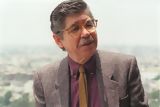
Novelist

Writer and poet

Volleyball player

Italian-Peruvian naturalist and geographer

Singer and percussionist

Last Inca emperor

Politician, former prime Minister

Journalist and TV host
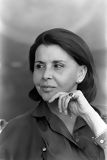
Poet

Inca warrior
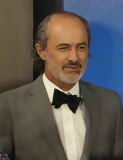
Actor and comedian

Biophysicist

Poet

Doctor and researcher
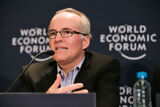
Businessman, Interbank group

Journalist and writer
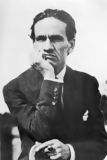
Poet and writer
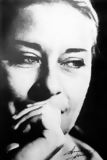
Singer and songwriter
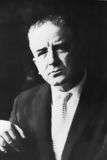
Writer

Film director, Berlin Golden Bear winner

Football player
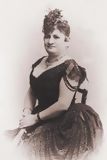
Writer and journalist
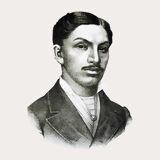
Doctor and scientist

Photograph

Chess player

Industrialist
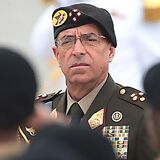
Former general

Specialist in public health

Actress and singer

Afro-Peruvian music singer

Mathematician and engineer

Indigenous chronicler

Neurologist and anthropologist

Painter

Football player
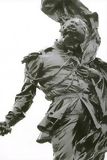
National hero, military leader

Intellectual and reformer

Chef and entrepreneur

Fashion designer

Singer-songwriter

TV presenter

Marathon runner

Indigenous Peruvian chronicler

Theologian

Former national team captain

Economist and former health minister

Inca princess

Writer and television host

Folk musician

Poet and guerrilla
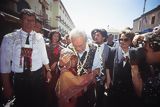
Former UN secretary-general

Chef, known for fusion cuisine

Football player

Peruvian aviation pioneer

Poet and artist
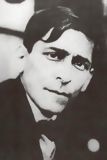
Marxist philosopher and writer

Industrialist and businessman
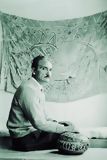
Novelist and ethnologist

Painter and muralist

Opera tenor

Fashion designer

Cardinal of Lima

Peruvian tennis player

Football coach

Leader of the indigenous rebellion
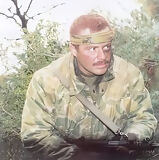
Military hero

Latin singer
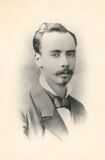
War of the Pacific hero

The youngest mother in history

Politician
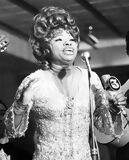
Creole music singer

Tennis player
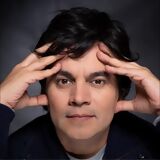
Musician

Writer and politician

Politician and founder of the Christian Democratic Party

Founder of Sodalitium Christianae Vitae

Archaeologist and anthropologist
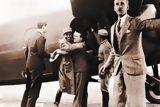
Military leader and politician

Television host
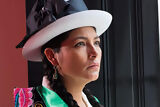
Actress and singer

Contemporary sculptor
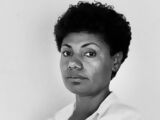
Women’s rights activist

Beauty queen

Astrophysicist

Heroine of independence

Mathematician and archaeologist

Historian and anthropologist
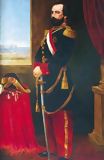
Military figure and historical figure

Fashion photographer
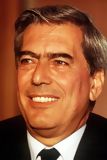
Writer, Nobel Prize in Literature, Politician

Revolutionary leader
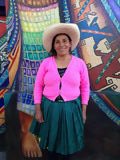
Environmental activist

Leader of the indigenous rebellion

Musician from Gaia band
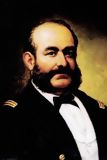
War hero
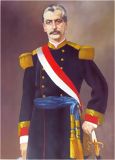
Military leader and politician

Chef, known for Nikkei cuisine

Volleyball coach and former player

Environmental activist

Television personality

Writer
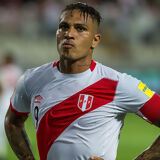
Football player

Epidemiologist and former health Minister

Inventor and aerospace pioneer

Soldier and inventor
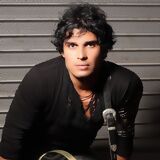
Rock singer

Chef and co-owner of Central restaurant

Painter

Football player

TV presenter and actress
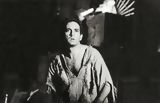
Actor
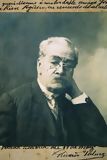
Writer and historian

Journalist and lawyer

Archaeologist, founder of Caral site
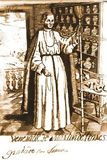
Monk and Saint
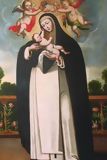
Saint, patron of Latin America

Physicist and engineer

World champion surfer

Actress

Oncologist
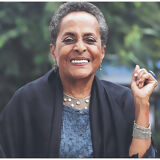
Singer, Latin Grammy winner

Former mayor of Lima

Singer

Actress

Former football player

Painter
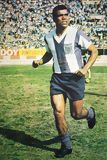
Former football player

Painter

Inca leader

Archbishop, saint
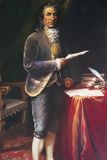
Leader of the indigenous rebellion

Revolutionary indigenous leader

Diplomat and intellectual

Sculptor and painter
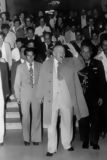
Political leader, founder of APRA

Lawyer and Former prime minister

Chef of Central restaurant
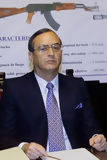
Former head of secret services

Popular singer

Fashion designer

Exotic music singer
Paolo Guerrero, born on January 1, 1984, in Lima, is considered one of the greatest footballers in the history of Peru. A world-class striker, he has left an indelible mark on South American and international football. Known for his power, technique, and exceptional goal-scoring instincts, Guerrero has played for several prestigious clubs around the world while becoming the all-time top scorer for the Peruvian national team. Beyond his sporting achievements, Guerrero is a national icon, celebrated for his determination, leadership, and love for his country.
Paolo Guerrero grew up in a family deeply passionate about football. His uncle, José Gonzales Ganoza, was a goalkeeper for the Peruvian national team, and his cousin, Julio Rivera, also played for the national side. From a young age, Paolo showed exceptional talent for football, joining the ranks of Academia Cantolao in Lima, a renowned academy known for developing top-level players.
At the age of 16, Paolo made a crucial decision in his career by joining the prestigious German club Bayern Munich. He entered Bayern's youth academy, where he quickly climbed the ranks due to his technical skills and goal-scoring ability. This experience in Europe helped him develop tactical and physical discipline that would shape his future career.
In 2004, Paolo Guerrero made his debut with Bayern Munich's first team in the Bundesliga. Despite limited opportunities due to stiff competition within the squad, he made the most of every chance to showcase his talent. With Bayern, he won the Bundesliga and the DFB-Pokal (German Cup), adding prestigious titles to his resume early in his professional career.
In 2006, Guerrero decided to leave Bayern Munich and join Hamburger SV, another Bundesliga club. At Hamburg, he found more playing time and quickly became a key player for the team. His impressive performances in the German league and his decisive goals in European competitions earned him international recognition. During his years in Germany, Paolo developed a style of play that combined physical strength with great technical ability, making him dangerous both in the air and in one-on-one situations.
After several years in Europe, Paolo Guerrero decided to return to South America in 2012 by joining Brazilian club Corinthians. This transfer marked a new chapter in his career, and Paolo quickly became one of the most popular players in the Brazilian championship. With Corinthians, he reached the pinnacle of his career by winning the 2012 Copa Libertadores, one of the most prestigious tournaments in South America. Guerrero played a pivotal role by scoring the winning goal in the final against Boca Juniors, securing a historic title for his club.
Just a few months later, in December 2012, Guerrero played a key role in Corinthians' victory at the FIFA Club World Cup. He scored the decisive goal in the final against Chelsea, helping his team claim the world title. This success made Paolo a hero in Brazilian football, and his name became synonymous with big moments in international competitions.
After his glorious years at Corinthians, Paolo Guerrero joined Flamengo in 2015, one of the most iconic clubs in Brazil. At Flamengo, he continued to shine, establishing himself as one of the top strikers in the Brazilian league. His spectacular goals and ability to lead the team's attack earned him the love of Flamengo supporters, who quickly regarded him as a club legend.
In 2018, Guerrero signed with Internacional de Porto Alegre, another major Brazilian club. Despite his age, he continued to prove that he was still at the top of his game. At Internacional, Paolo scored crucial goals and contributed to the team's strong performances in both domestic and international competitions. His longevity at the highest level is a testament to his professionalism and incredible talent.
While Paolo Guerrero is a hero at club level, it is with the Peruvian national team that he cemented his status as a legend. He made his debut for the national team in 2004 and has since become the top scorer in the history of La Blanquirroja. With over 100 caps and dozens of goals to his name, Paolo has been a key figure for his national team.
He has represented Peru in numerous international tournaments, including the Copa América and World Cup qualifiers. In the 2011 Copa América, he was the tournament's top scorer with five goals, helping Peru finish in third place. In 2015, he repeated this feat by once again becoming the Copa América's top scorer.
Paolo's greatest achievement with the Peruvian national team came during the 2018 FIFA World Cup in Russia. After a 36-year absence, Peru finally returned to the World Cup, and Paolo played a pivotal role in securing this historic qualification. Though Peru did not advance beyond the group stage, Guerrero scored a memorable goal in the final match against Australia, becoming the first Peruvian to score in a World Cup since 1982.
Beyond his goal-scoring prowess, Paolo Guerrero is also known for his leadership on the field. As captain of the Peruvian national team, he has inspired his teammates with his work ethic, passion, and dedication. His influence extends beyond football, making him a role model for young athletes in Peru and across South America.
Despite facing obstacles and controversies, including a doping suspension in 2017 that threatened to prevent him from participating in the 2018 World Cup, Paolo has always bounced back stronger. His commitment to his country and his desire to prove his worth have made him an iconic figure, not just in football but beyond it.
Paolo Guerrero's career is not limited to his successes with clubs or the national team. He is respected by his peers and fans worldwide for his determination and incredible resilience. Over the years, he has built a reputation as a player who shines in big matches, capable of scoring in decisive moments. Whether in Copa Libertadores finals, World Cup qualifying matches, or continental competitions, Paolo has consistently proven that he can rise to the occasion.
Paolo Guerrero is much more than a talented footballer. He embodies the passion, dedication, and love for the game that have made him a true legend. His achievements on the field, both with clubs and the national team, have cemented his place as an unforgettable figure in the history of world football. With memorable goals, prestigious titles, and unquestionable leadership, Guerrero will forever be remembered as one of the greatest players Peru has ever produced.
As his career gradually comes to an end, Paolo Guerrero's legacy continues to inspire a new generation of footballers. He will always be a hero of Peruvian football and a symbol of sportsmanship and perseverance.